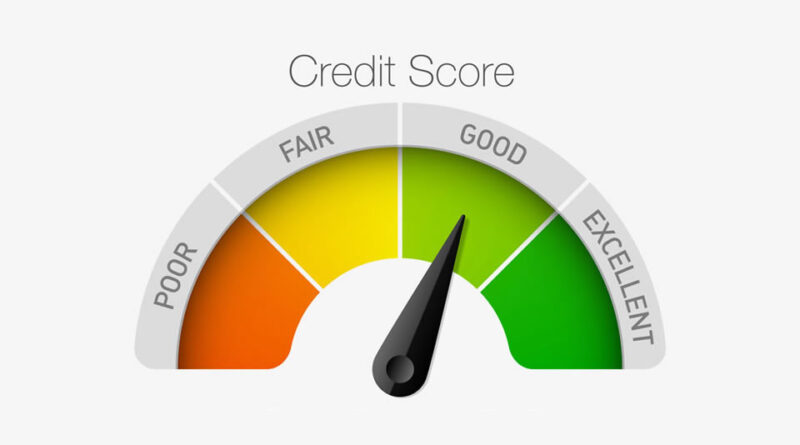Understanding Credit Scores: How to Improve Yours Quickly
Your credit score is one of the most important financial metrics that can affect everything from getting approved for a loan to securing a rental property or even getting a job. It represents your creditworthiness, and lenders, landlords, and other financial entities use this score to evaluate how reliable you are in managing debt. While improving your credit score may seem like a slow process, there are ways to boost it relatively quickly if you know where to focus your efforts.
In this blog, we’ll break down what a credit score is, how it’s calculated, and provide actionable tips to improve yours quickly. Additionally, we’ll show you how using tools like a free paystub generator can help ensure your income records are accurate, which plays a key role in managing your financial health.
What Is a Credit Score?
A credit score is a three-digit number that ranges from 300 to 850 and is based on your credit history. The higher your credit score, the more creditworthy you appear to lenders. It is calculated by credit bureaus based on the information in your credit report, which includes your payment history, the amount of debt you owe, the length of your credit history, and more.
Key Components of a Credit Score:
- Payment History (35%): This is the most significant factor and includes whether you’ve paid your bills on time. Late payments can have a negative impact on your score.
- Credit Utilization (30%): This measures how much of your available credit you’re using. Keeping your credit card balances low can positively affect your score.
- Length of Credit History (15%): A longer credit history generally improves your score, as it shows lenders that you’ve been managing credit responsibly over time.
- Credit Mix (10%): This factor looks at the variety of credit types you have, such as credit cards, mortgages, and loans. Having a mix of credit types can boost your score.
- New Credit Inquiries (10%): Every time you apply for new credit, a hard inquiry is made on your report, which can temporarily lower your score.
Why Your Credit Score Matters
Your credit score can have a significant impact on various aspects of your financial life. Here’s why maintaining a healthy score is crucial:
- Loan Approvals: Whether you’re applying for a mortgage, auto loan, or personal loan, your credit score will be a determining factor in getting approved.
- Interest Rates: A higher credit score means you’re likely to get a lower interest rate, which can save you thousands of dollars in the long run.
- Rental Applications: Landlords often use credit scores to assess whether you’re financially responsible.
- Job Opportunities: Some employers check credit scores as part of their hiring process, particularly for jobs that involve managing money.
Maintaining a good credit score opens doors to better financial opportunities. If your score is less than stellar, here are some quick ways to improve it.
How to Improve Your Credit Score Quickly
Improving your credit score is possible with some disciplined financial habits. Here are some of the most effective strategies you can implement to see quick improvements.
1. Pay Off Outstanding Debts
One of the fastest ways to improve your credit score is by paying off outstanding debts, especially past-due accounts. If you have any bills that are overdue, making them current should be your top priority. Late payments can severely damage your credit score, so staying on top of payments is crucial.
Tip: Set up automatic payments or reminders to ensure you never miss a payment again.
2. Reduce Your Credit Utilization
Credit utilization is the percentage of your available credit that you’re currently using. It’s recommended to keep your utilization below 30%, meaning if you have a total credit limit of $10,000, you shouldn’t carry a balance higher than $3,000. Paying down your credit card balances to lower your utilization rate can significantly boost your score.
Quick Fix: If you can’t pay off your balances entirely, aim to reduce them to below 30% of your total available credit.
3. Dispute Errors on Your Credit Report
Errors on your credit report can unfairly lower your credit score. These mistakes might include incorrect account information, false late payments, or even accounts that don’t belong to you. Regularly check your credit report for any discrepancies and dispute errors with the credit bureaus to get them corrected.
How to Do It: You can request a free credit report from each of the three major credit bureaus (Experian, Equifax, and TransUnion) once per year through AnnualCreditReport.com. If you find any inaccuracies, file a dispute to have them corrected.
4. Ask for a Higher Credit Limit
If you’re using a significant portion of your available credit, it might make sense to request a higher credit limit from your credit card issuer. If approved, your credit utilization will decrease, which can have a positive effect on your score. Just make sure not to spend more after your limit increases!
Pro Tip: Don’t request an increase on all of your cards at once, as too many requests in a short period can raise red flags and lead to a temporary drop in your score.
5. Become an Authorized User on Another Account
If you know someone with excellent credit, becoming an authorized user on their account can help improve your score quickly. When you’re added to a credit card with a long, positive history, that account is reflected on your credit report, which can boost your score.
Caution: Make sure the person’s account is in good standing. If they miss payments or carry high balances, it could negatively affect your credit score as well.
6. Open a Secured Credit Card
If you have poor credit or no credit history, opening a secured credit card can help you rebuild your score. Secured cards require you to make a deposit upfront, which serves as your credit limit. By making small purchases and paying them off on time, you can start building positive credit history.
Bonus: After showing responsible use, many secured cards convert to unsecured cards, giving you more credit without needing a deposit.
7. Keep Old Accounts Open
The length of your credit history plays a significant role in your credit score, so closing old credit card accounts can negatively affect your score. Even if you don’t use an old card regularly, keeping the account open can help improve your overall credit age and credit utilization rate.
Tip: Use the card occasionally for small purchases, and pay it off in full to keep the account active.
8. Use a Free Paystub Generator to Verify Income
Maintaining a healthy credit score involves more than just paying down debt — ensuring accurate documentation of your income is also essential. For individuals with variable income or self-employed workers, using a free paystub generator can be a great tool for creating accurate records of your earnings.
Having up-to-date paystubs can be useful when applying for credit or disputing errors on your credit report, as they provide proof of consistent income. Whether you’re applying for loans or disputing credit report inaccuracies, having clear documentation of your income can make the process smoother.
The Role of Consistency in Improving Your Credit Score
While these strategies can provide quick improvements to your credit score, consistency is key. Building good credit takes time, and practicing good financial habits regularly will ensure your score continues to rise. Pay your bills on time, keep your credit utilization low, and monitor your credit report for errors — these habits will pay off in the long run.
Final Thoughts: Take Control of Your Credit Score
Improving your credit score doesn’t have to be a daunting task. By following the steps outlined above, you can see quick improvements and set yourself on a path to long-term financial success. Whether it’s paying down debts, disputing errors, or using tools like a free paystub generator to verify your income, there are plenty of ways to take control of your credit score.
Remember, your credit score is more than just a number — it’s a reflection of your financial health. Take the time to review your credit report, manage your debt wisely, and maintain a consistent approach to improving your creditworthiness. With diligence and a little effort, you can achieve the score you need to secure better financial opportunities.




